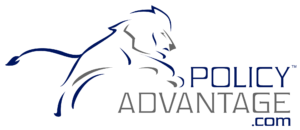Reshaping Health Insurance: The Power of Blockchain
Introduction:
In the age of digitization, the potential applications of blockchain technology are seemingly boundless. From financial services to supply chain management, blockchain’s ability to enhance transparency, security, and efficiency has captivated various industries. One sector that stands to benefit significantly from this technological marvel is health insurance. In this article, we will explore how blockchain is poised to reshape the landscape of health insurance, offering a plethora of benefits to both providers and policyholders.
1. Enhanced Data Security and Privacy:
Data breaches and privacy concerns have plagued the healthcare industry for years. The decentralized nature of blockchain could potentially provide a solution. In a blockchain-based health insurance system, sensitive patient information, such as medical history and billing details, can be securely stored and shared across the network. Each transaction is encrypted and linked to the previous one, creating an immutable and tamper-proof record. This approach significantly reduces the risk of unauthorized access and ensures that patient data remains confidential and uncompromised.
2. Streamlined Claims Processing:
The claims processing system within the health insurance industry is notorious for its complexity and inefficiency. Blockchain technology can streamline this process by creating a transparent and automated system. Smart contracts, self-executing agreements triggered by predefined conditions, can be used to automatically process claims when certain criteria are met. This eliminates the need for intermediaries, reduces paperwork, and accelerates claims settlement, leading to a more seamless experience for policyholders.
3. Prevention of Fraud and Abuse:
Fraudulent claims and billing discrepancies contribute to rising healthcare costs for both insurers and policyholders. Blockchain’s inherent transparency and traceability can help combat these issues. Every transaction is recorded on the blockchain, making it easier to detect discrepancies and inconsistencies. Additionally, the decentralized nature of blockchain eliminates a single point of failure, making it more difficult for malicious actors to manipulate the system for personal gain.
4. Efficient Provider Network Management:
Maintaining an up-to-date and accurate provider network is crucial for health insurance companies. Blockchain can simplify this process by creating a shared and secure database of healthcare providers. This ledger can include verified credentials, specialties, and performance metrics, enabling insurers to make more informed decisions when creating or updating their provider networks. This ensures that policyholders have access to high-quality care and minimizes administrative overhead.
5. Real-time Access to Patient Records:
In emergency situations, having access to accurate patient records can be a matter of life and death. Blockchain’s decentralized and interoperable nature could enable authorized healthcare providers to access patient records in real time, regardless of the source or location of the data. This can lead to more informed medical decisions and better patient outcomes, especially when patients are unable to provide their medical history themselves.
6. Empowering Patients:
Blockchain can empower patients by giving them greater control over their healthcare data. Patients can grant temporary access to their medical records to specific healthcare providers while maintaining control over who has access and for how long. This not only puts patients in charge of their health information but also encourages better collaboration between different healthcare providers.
Conclusion:
The potential applications of blockchain in health insurance are as exciting as they are promising. By enhancing data security, streamlining claims processing, preventing fraud, and improving the efficiency of provider network management, blockchain can usher in a new era of transparency, efficiency, and patient empowerment. As the technology continues to evolve, its integration into the health insurance industry could result in a more patient-centric, cost-effective, and accessible healthcare system for all.
It’s worth noting that while the potential benefits are significant, the adoption of blockchain in health insurance will require careful consideration of regulatory compliance, interoperability, and industry collaboration. However, with the right implementation and collaboration, blockchain has the potential to reshape the health insurance landscape for the better.

